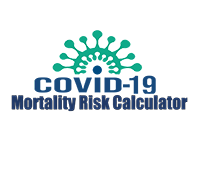News/Interviews
- read more
Bloomberg Distinguished Professor Nilanjan Chatterjee points to his childhood in India, attending public schools, as a driving force behind his work in applying mathematical statistics and probability theory to public health, cancer, epidemiology, and genetics. He was determined to give back what he could.

- read more
Studies and statistics alike have shown that people over 65 and those with underlying health conditions face the highest risks of dying from COVID-19 compared to the rest of the population. But what exactly are the odds of mortality for those individuals, as well as for everyone else who doesn’t fit in those categories?

- read more
The COVID-19 Risk Map was developed through a collaborative effort with PolicyMap and is an interactive map showing size of various high risk populations in US, nationwide and by cities, countries, and states. The maps are produced by application of the risk calculator to various national databases for risk factor distribution across US communities.

- read more
Hopkins has made the tool available online for use by public #health officials, employers, universities and anyone else who might be curious to determine their risk of infection. #publichealth # ...

- read more
This week 23andMe is hosting our third annual Genome Research Day, a meeting focused on human genomics research happening in and around the Bay Area. This also allows 23andMe scientists to explain some of our latest research. Among the many presentations, we’ll be highlighting some of our work around polygenic risk modeling. We asked Johns Hopkins University statistical geneticist, Nilanjan Chatterjee, Ph.D., a Bloomberg Distinguished Professor of Biostatistics and Medicine at Johns Hopkins University, to help us put into context the work being done around the world on risk modeling.

- Study Finds Genetic Basis of Common Diseases May Span Tens of Thousands of SNPs
Scientists in the U.S. and Korea have developed a statistical method for estimating the broad numbers of DNA variations that impact on different physical traits, such as height or childhood IQ, and on a wide range of diseases, from diabetes to bipolar disorder. Their findings, derived from analyses of existing genome-wide association studies (GWAS), suggest that any one trait or disease risk may be associated with up to tens of thousands of single nucleotide polymorphisms (SNPs) – many more than was previously thought – each of which has a minute individual effect, but which cumulatively impact significantly on trait variability or disease risk.
Read More
- Student paper award from Statistical Genetics and Genomics Section (SGGS) of ASA
Congratulations to Haoyu Zhang. He has been selected to receive the student paper award from Statistical Genetics and Genomics Section (SGGS) of ASA for his work on methods for accounting tumor characteristics in GWAS of cancers.

- Young Investigator Award
Congratulations to Prosenjit Kundu. He has been selected to receive the Young Investigator Award from the Epidemiology section of ASA for his work on generalized meta-analysis.

- read more
Scientists at Johns Hopkins Bloomberg School of Public Health have developed a powerful method for characterizing the broad patterns of genetic contributions to traits and diseases. The new method provides a "big picture" of genetic influences that should be particularly helpful in designing future genetic studies and understanding potential for genetic risk prediction.

- read more
By comparing the genetic code of gallbladder cancer patients with those of healthy volunteers at nearly 700,000 different locations in the genome, researchers say they have found several gene variants which may predispose individuals to develop the disease.
The findings, published March 6 in The Lancet Oncology, could lead to a better understanding of the causes of this highly fatal condition, which could in turn lead to better treatments for the disease. The work is a collaboration between the Johns Hopkins Bloomberg School of Public Health, the National Cancer Institute and Tata Memorial Cancer Centre in Mumbai, India.

Pagination
- Page 1
- Next page
